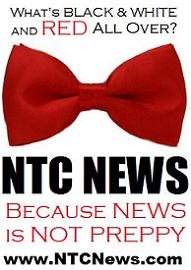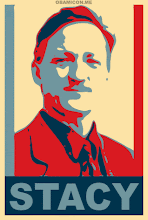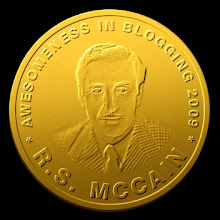David Brooks lost me when, in starting out his never to be forgotten column, he wildly denounces the current "generation of political leaders," including the pro-bailout George W. Bush ("completely out of juice"), Henry Paulson ("inept"), Barney Frank (a "too busy" "media darling") and Nancy Pelosi ("did she have to act like a Democratic fund-raiser...?") -- yet attacks the 228 "nihilists" who voted against the Bush-Paulson-Frank-Pelosi bailout plan for refusing to follow such leadership.Which prompted me to this response:
[David Brooks] lost me in March 1997, Wlady. Despite the self-evident and manifold failures of "National Greatness," both as policy and politics, Brooks seems never to have entertained a second thought about his paean to "an affirmative view of the public realm," his sneering dismissal of "populist resentment," and his flat declaration that "American purpose can find its voice only in Washington."Being that Wlady, myself and other such anti-Brooksians as James Poulos are beneath the notice of Brooks, no response is to be expected from the Olympian heights, but I did want to put on record the root of my grievance with Brooks and "National Greatness."
That infamous essay is one of the reasons I so fear the consequences of a Republican defeat on Nov. 4. The GOP has shown in recent years a habit of misreading its defeats. Bob Dole's defeat in 1996 convinced not only Brooks but apparently many other Republicans that opposition to Big Government was a losing proposition. Not only the Brooks/Kristol "National Greatness" theme but also the Olasky/Bush "Compassionate Conservatism" were born from a Republican desire to escape the Spirit of '94.
It seems never to have occurred to anyone that Dole's defeat was largely the fault of Bob Dole himself. Certainly Dole -- "the Senator From Archer Daniels Midland" and "the Tax Collector For the Welfare State" -- was no anti-government firebrand. And yet, though the Gingrich-led insurgents maintained their majority in the 1996 election while Dole lost, the politics of Gingrich got blamed for the failure of of the Dole candidacy.
That counterfactual interpretation of the 1996 election led to "National Greatness," and one heard a lot of talk at that time that the essential problem was that the GOP had become too "mean-spirited" and "partisan." Ergo, the solution was the "compassionate" Bush, who would bring a "new tone" to Washington.
I fear that John McCain's defeat in November will lead to a similarly disastrous misinterpretation, and the fact that Brooks and Kristol now have platforms at the New York Times and Fox News to spread such wrong-headedness only increases my sense of foreboding.
Brooks' contempt for "populists" is obviously a residue of the Buchanan challenge that crippled Bush 41 in 1992, as well as of Ross Perot. Rather than attempting to harness populist resentment as a force to drive limited-government reform movement (which was what Gingrich and the '94 revolution were about), Brooks sees populism as something tainted and unworthy.
Brooksian anti-populism leads to a conservatism that can never claim to speak for Joe Sixpack or stand squarely against the progressive vision of an all-powerful federal government. "National Greatness" is a one-way road leading backward, a retreat from Reaganism, a return to the Laodicean "modern Republicanism" of the Eisenhower era that so disgusted Bill Buckley.













No comments:
Post a Comment